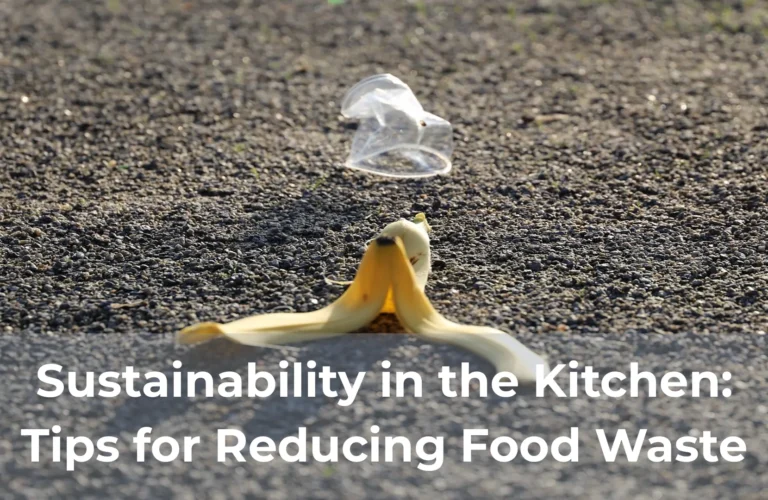Sustainability in the Kitchen: Tips for Reducing Food Waste
Reducing food waste is not only beneficial for the environment but also for your wallet. In the kitchen, there are numerous ways to adopt sustainable practices and make a positive impact. From planning meals and proper storage to creative ways of using leftovers, this article provides valuable tips to help you reduce food waste and embrace sustainability in your kitchen.
By implementing these tips, you can play a significant role in minimizing the alarming amount of food that ends up in landfills each year. Not only does reducing food waste help conserve resources and reduce greenhouse gas emissions, but it also allows you to save money and become more mindful about your consumption habits. With a few simple changes in the way you shop, cook, and store food, you can make a big difference and contribute to a more sustainable future.
Tips for Reducing Food Waste in the Kitchen
Food waste is a global problem that not only impacts our environment but also contributes to hunger and food insecurity. One of the biggest areas where food waste occurs is in the kitchen. However, by making a few simple changes and adopting some mindful habits, we can all play a part in reducing food waste and creating a more sustainable future. Here are some practical tips for minimizing food waste in your kitchen.
Plan your meals and make a shopping list before heading to the grocery store. This will help you buy only what you need and avoid purchasing items that might end up going to waste. Take inventory of your pantry and fridge before making your list, and try to plan meals around what you already have. Be realistic about the portion sizes you and your household actually consume, and avoid overbuying perishable items that may spoil before you have a chance to eat them.
Get creative with your leftovers. Instead of letting them sit in the fridge until they become unappetizing, find ways to repurpose them into new dishes. For example, leftover roasted vegetables can be turned into a delicious pasta sauce or added to a sandwich. Overripe fruits can be used in smoothies or baked into muffins. By getting creative, you not only reduce waste but also discover new and exciting flavors.
Understanding the Impact of Food Waste on the Environment
Food waste is a global problem that has far-reaching consequences for the environment. Each year, millions of tons of food are discarded, contributing to greenhouse gas emissions, land degradation, and water pollution. The impact of food waste on the environment is significant and cannot be ignored. From the energy and resources used to produce and transport the wasted food to the methane emissions produced when it decomposes in landfills, every step of the food waste cycle has detrimental effects. Understanding the impact of food waste on the environment is crucial in order to develop effective strategies to reduce it and create a more sustainable food system.




